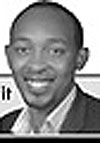In the period leading up to the presidential election and the period after Paul Kagame, the RPF candidate, was overwhelmingly chosen by the Rwandan electorate, we witnessed an unseemly attack on the Rwandan democratic process and its very Constitution by members of the international press corps and self-styled Rwanda ‘experts’.


In the period leading up to the presidential election and the period after Paul Kagame, the RPF candidate, was overwhelmingly chosen by the Rwandan electorate, we witnessed an unseemly attack on the Rwandan democratic process and its very Constitution by members of the international press corps and self-styled Rwanda ‘experts’.
While I believe that there is a certain ignorance in the foreign press, especially when it comes to a country as complicated as ours, there is another angle to all this anti-Rwanda hysteria. This angle, I believe, is rooted in genocide ideology and revisionism.
The foreign media, when quoting Rwanda ‘experts’, did not, or maybe could not, know that some of these experts were simply enemies of the Rwandan government for ideological reasons and, therefore, couldn’t have possibly been unbiased in their opinions.
Journalists, such as Anne Garrison, and others of similar ilk, are just as bad as Filip Reyntjens and Susan Thompson. This is because they allow their personal opinions to cloud their judgment and therefore the gist of their articles. But because they call themselves neutral, they deceive their readers into believing the nonsense they spew.
For the mainstream media, I allow them to plead ignorance. The CNN, BBC, Reuters and AP reporters often fail to understand the dynamics of Rwanda and the Rwandan psyche when they report the news. The fact is that these journalists, even when they live in Rwanda, fail to leave their ‘Western’ mentalities at the door and therefore report Rwandan events through their own eyes.
Let us look at the manner in which they reported, and still report, on Victoire Ingabire Umuhoza, Bernard Ntaganda and Frank Habineza. They are feted as the ‘true’ Rwandan opposition by the international media because, in the case of Mrs. Ingabire and Mr Habineza, respectively, they are a "Hutu who agitates for a monument for Hutus killed during the Rwandan conflict” and a "Tutsi who fell out with Kagame’s regime and became an environmentalist”.
It is obvious that the international media equates opposition in Africa with ethnic divisions and palace coups.
Any kind of opposition that doesn’t play into this stereotype is declared "null and void”. After all, TIA (This Is Africa). The ‘Dark Continent’ and backdrop of Joseph Conrad’s ‘Heart of Darkness’.
To them, when these ‘opposition’ members were not allowed to participate in the electoral process it was because "Kagame was afraid of a fair fight”. These journalists and writers should stop looking at the President and start looking at our Constitution; a document that we voted for in the millions.
Article 9, of the Constitution of the Republic of Rwanda, talks about the fundamental principles of this body of law.
It states that "The State of Rwanda commits itself to conform to the following fundamental principles and to promote and enforce the respect thereof: - fighting the ideology of genocide and all its manifestations;
- eradication of ethnic, regional and other divisions and promotion of national unity;
- equitable sharing of power;
- building a state governed by the rule of law, a pluralistic democratic …
- the constant quest for solutions through dialogue and consensus.”
After reading this constitutional provision a foreign pressman/woman should have come to the realisation that playing the "This is Africa” card was not going to stick; that is, if they actually wanted to be truthful in their reporting. Almost the entire Rwandan system of government, which so confuses people, can be explained by this provision.
The power-sharing government, which is comprised of members from the various registered political parties, is based on this provision. The ‘no-holds-barred’ approach to Victoire Ingabire’s shenanigans is a result of this provision. The Consultative Forum for Political Parties is another initiative that is based on Article 9.
Now, if one sees politics as strictly a ‘blood sport’, or as Milton Obote, former president of Uganda said "a dirty game”, where the winner emerges bruised, battered and barely alive, then the Rwandan election must have been a sham.
The candidates didn’t lie outrageously, they presented their manifestoes without hyperbole and the electorate didn’t vote on sectarian lines. How very strange. To foreign journalists and observers, this showed authoritarianism, the lack of political space and a free media.
One of the major things, which every single ‘expert’ and correspondent refuses to acknowledge, is the impact of the 1994 Genocide against the Tutsi on our psyche. We alone have had to deal with the consequences of it and we’ve put in place mechanisms that might not make sense to the outside observer. But they make total sense to us.
We know the evils of an ideology that attempts to dehumanise someone and we know what political marginalisation can lead to.
It is my opinion that, unless the ‘experts’ and foreign journalists take a more nuanced view of Rwanda and its struggles to climb out of the mire, the news coming out of Rwanda will continue being negative in tone.
This kind of reporting, however, will not be swallowed hook, line and sinker. Rwandans, too, have a voice and we shouldn’t be afraid to voice our disagreement. The fact of the matter is this, as Rwandans we must state our case to the world and not let others do it for us.
Sunny Ntayombya is an Editor with The New Times


